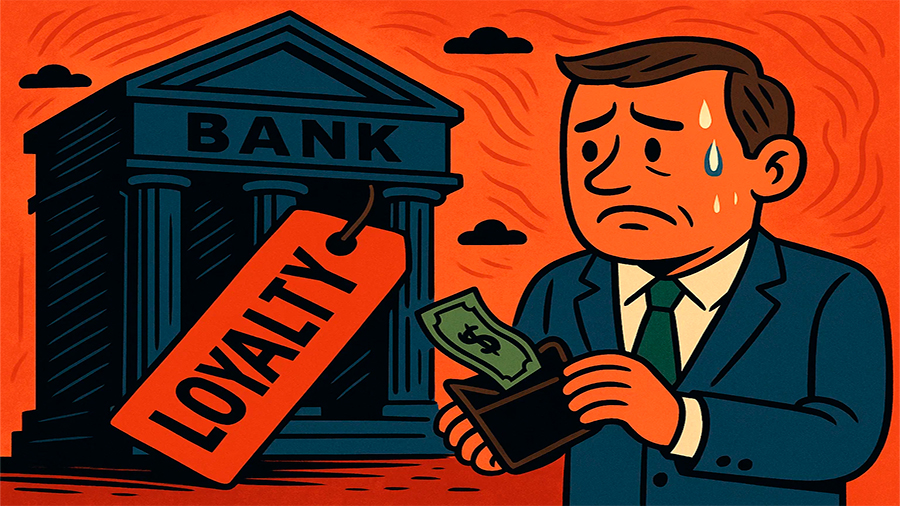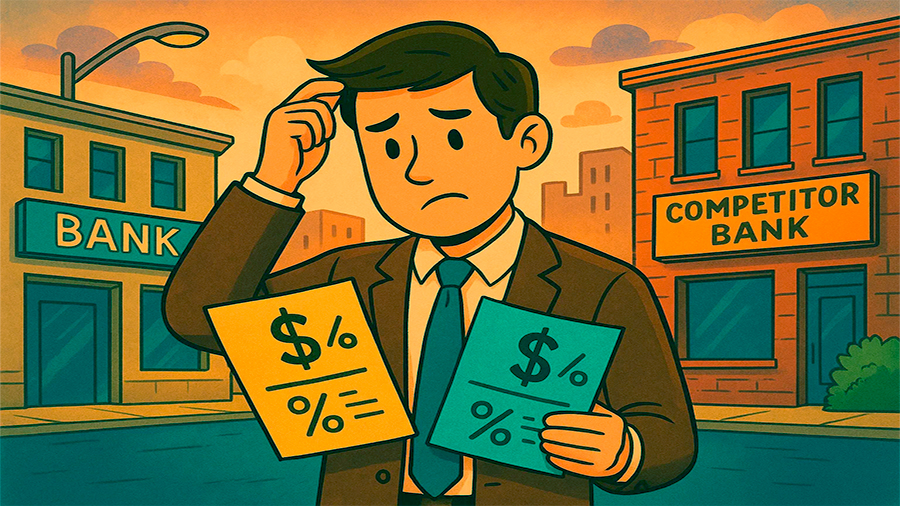How Bank Loyalty Affects the Terms of the Loan
Staying with one bank for years seems like the smart, responsible thing to do. You’ve had a checking account there since college, your paycheck lands there every month, and they probably know your spending patterns better than you do. So, naturally, when it’s time to apply for a loan — a mortgage, car loan, business line, anything really — you turn to the same bank. It’s familiar. You expect perks. Maybe even a discount. But here’s the catch: loyalty doesn’t always mean better loan terms. In fact, sometimes, sticking around can cost you more than switching would.
Let’s break this down. Banks are businesses. They love new customers. And to attract them, they offer shiny deals — 0% interest for six months, no closing costs, fast approvals. Meanwhile, existing customers often get standard terms, even if they’ve been with the bank for a decade. It’s frustrating, but it’s how marketing budgets are spent — not on keeping you, but on bringing someone else in. This doesn’t mean loyalty never pays off — it does, sometimes — but you need to know when it actually benefits you, and when it doesn’t.
What Loyalty Gets You — When It Works
Let’s start with the good news. In some cases, loyalty really does work in your favor. Banks keep track of your account behavior. If you’ve never overdrawn, your deposits are steady, and you’ve handled past credit responsibly, that’s worth something. Some banks offer preferential rates or internal approvals for “trusted clients,” especially if you hold multiple products with them — savings, investments, insurance, maybe even your mortgage.
Your bank may also waive certain requirements. They already have access to your transaction history, so they might not need pay stubs or a long list of documents. They may fast-track your application or approve a higher loan amount because they’ve watched your money habits for years. And if something goes wrong — late payment, financial stress — they may be more willing to renegotiate with a loyal client than with someone they barely know.

Examples of Loyalty Perks
| Loyalty Factor |
Possible Advantage |
| Multiple accounts with one bank |
Bundled discounts on loan interest |
| Good internal credit score |
Faster approval, larger loan amounts |
| Long relationship (10+ years) |
Waived processing or service fees |
| Previous loan paid back in full |
Fewer conditions for new loan |
There are even some banks that have “preferred client” programs — kind of like loyalty tiers — where the more business you bring them, the better rates and treatment you get. But here’s the trick: these perks are rarely automatic. You usually have to ask, negotiate, or even threaten to leave before they’re offered. And sometimes, even then, new customers still get better deals.
When Loyalty Stops Paying — And Starts Costing
Now, the not-so-great side of the story. Despite years of loyalty, your bank might offer you the same (or worse) terms than they give to new applicants. Why? Because they know you’re less likely to shop around. You’re comfortable. You already have their app. They don’t have to “sell” you anything — you’ve already bought in.
That’s why new customers often get the best deals. It’s a marketing game. To win new business, banks offer promotional rates, waive fees, or sweeten the deal with perks. Existing clients? They already have you, so there’s little pressure to compete for your attention.
So while your loyalty might feel like an asset, it could actually be making you overpay for convenience. And let’s be honest — when you’re talking about loans that span years or decades, even a tiny rate difference adds up to thousands.
Comparing What You Might Miss
| Loan Type |
Loyal Customer Offer |
New Customer Promo |
| Mortgage |
5.2% with $1,500 fees |
4.5% with no fees |
| Auto Loan |
7.5% interest, 5-year term |
6.1% interest, 6-month deferment |
| Personal Loan |
9.2% fixed rate |
Introductory 7.4% online rate |
Even if the numbers seem small — 0.5%, 1% — they affect the entire loan. On a $200,000 mortgage, a 0.5% rate difference could mean paying $20,000 more over the life of the loan. That’s a big price for sticking with what feels comfortable.
So When *Should* You Stick With Your Bank?
There are some situations where loyalty really does matter. If you have a complicated income situation — say you’re self-employed, a freelancer, or have variable revenue — your bank might be more understanding because they already know how your finances flow. They’ve seen your deposits, withdrawals, and savings patterns in real time. A new lender might see red flags where your bank sees normal patterns.
Loyalty can also help if your credit history is imperfect. A bank with years of data might overlook a single missed payment or an old default if the rest of your profile looks strong. Plus, when things go wrong — job loss, illness, business slowdown — your current bank may be more flexible with restructuring or pausing repayments if you’ve built a good record with them.
And then there’s the human side. If you’ve worked with the same manager or banker for years, and they’ve gone out of their way to help you in the past, that’s worth something. It might not show up on paper, but a trusted relationship can save you from future headaches — or help you access credit when others would say no.

When It’s Time to Shop Around
But if your profile is clean — good credit score, stable income, no debt problems — you should absolutely compare offers. Don’t assume your bank has the best deal just because they have your loyalty. In fact, use that loyalty as leverage. Go to your bank with competitor rates in hand and ask if they’ll match or beat them. If they won’t, it might be time to rethink the relationship.
Shopping around also educates you. You’ll see what’s standard in the market, what’s inflated, and what fine print to look for. That information can help you make better borrowing decisions — whether you stick with your current bank or go somewhere new.
Questions to Ask Before Choosing
- What is the total cost of the loan over time — including fees?
- Is the interest rate competitive compared to other banks?
- What’s the penalty for early repayment?
- Will they waive or reduce any fees because of your loyalty?
- Can they offer flexibility if your income changes?
Remember: you’re the customer. They should want your business — not assume they already have it.
The Conclusion
Loyalty to your bank can help — but only if the bank sees you as more than just an account number. In some cases, it leads to real advantages: smoother approvals, better service, flexibility when life happens. But too often, loyalty turns into complacency — on both sides. Your bank stops trying, and you stop checking if they’re still the best option.
If you want the best loan, act like a free agent. Compare offers. Ask questions. Use your history as leverage — but don’t let it blind you. Banks need to earn your loyalty with every product, every rate, and every contract. If they don’t? There’s nothing wrong with shopping around. In fact, it’s one of the smartest things you can do.







